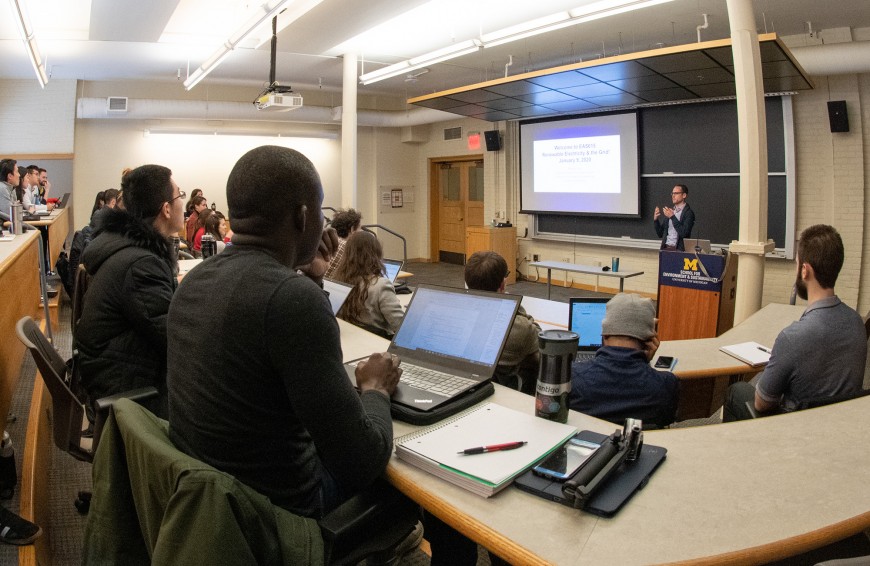
 back to all news
back to all news
Decolonizing the Curriculum at SEAS

In an effort to identify and dismantle power structures and teachings that have legacies of colonialism, racism, and imperialism and remove them from the classroom, the School for Environment and Sustainability (SEAS) has launched a program to begin decolonizing class syllabi. Decolonizing the curriculum includes rethinking and changing the content to be more inclusive of different voices, as well as "questioning the very production of knowledge and even re-learning how to read texts."
Students’ calls for the decolonization of SEAS courses peaked in 2018 and, as a result, a pilot program for this effort was launched in Summer 2020. The program was led by SEAS master’s second-year students Sam Stokes and Ali Surdoval and first-year master’s students María Dabrowski and Haley Mullen. The program provides funding to faculty to pay students for 40 hours of work that involves literature and syllabi reviews, and curriculum re-envisioning in the service of decolonial scholarship. The SEAS decolonization program has worked with 12 faculty on 12 courses over the last two semesters. Twenty-two students have been at the heart of the program, engaging with existing materials and helping professors find alternatives that could better enrich the scope of SEAS classes.
“Even though the program is relatively new, it has already inspired some impactful change,” said Stokes. “Students who have participated in this initiative have really taken things to heart. I see an increase in activism and in the steps they're willing to take, including emailing professors where they think content is problematic.” Stokes adds that “many faculty participants have also demonstrated an increased awareness, in both students and faculty, of how colonialism appears in their fields and a growing dedication to ongoing decolonial teaching and learning.”
Professor Emilia Askari, who teaches in the Program in the Environment (PitE), participated in the initiative with her Environmental Journalism class. It inspired students such as Rachel McKimmy, a PitE senior, to write a story on changes to Native American food systems during the Covid-19 pandemic. Another student, Anna Barr, who also is a PitE senior, wrote a piece on the intersecting interests and tension between hunting and conservation groups. Conversations with her students and the decolonizing group inspired Askari to create an entirely new course based on equity and the environment, Public Discourse Around Poverty and the Environment in the USA and Colombia, for the upcoming fall semester. Another faculty participant, SEAS Professor Michael Craig, noted that he created new “content around energy burden, energy justice, and energy on tribal lands” for his course on Renewable Energy and the Grid (EAS 615). “This material brought invaluable perspectives to the class and enabled me to fully integrate these concepts into the classroom.”
The decolonizing syllabi initiative will continue with five more classes this summer. By continuing this work we can ensure that all SEAS courses promote equitable perspectives that fully acknowledge institutional misgivings of the past. “Working with faculty to decolonize their syllabi has been a really valuable learning experience for all of the students involved,” said Mullen. “Regardless of what the final syllabi look like, this process allows students to critically engage with course materials and use their role to make positive changes in SEAS courses. Professors and students who participate are playing a critical role in making SEAS a more welcoming, inclusive, and academically robust program.”
Read more: Decolonizing the Curriculum for More Inclusive Learning

